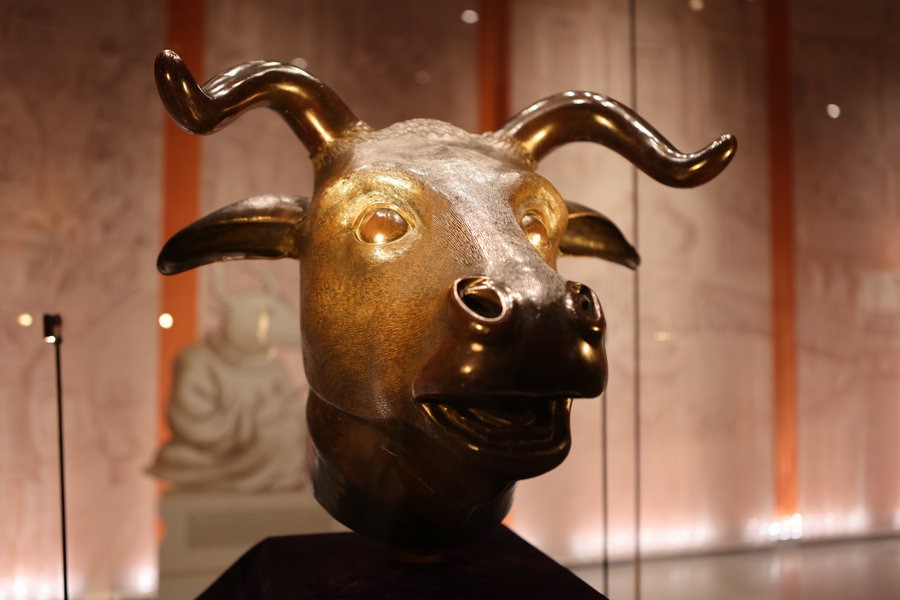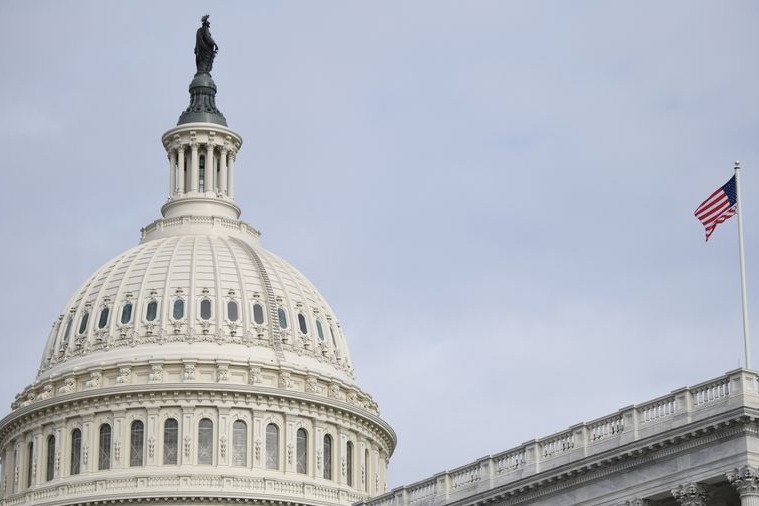HK’s future rests in the country’s development

On Dec 7, the US Treasury Department announced sanctions to be imposed on 14 vice-chairpersons of the Standing Committee of the National People’s Congress for a decision that cleared the way for the Hong Kong Special Administrative Region to unseat, according to Article 104 of the Basic Law, four opposition lawmakers who violated the Basic Law and betrayed the HKSAR. As of now, Washington has only yet to do the same against China’s top state leaders. Clearly, outgoing US President Donald Trump is determined to push Sino-US relations closer to ruin before his term in office ends.
To complicate matters further, the Washington-based Heritage Foundation issued a report the next day stating that the implementation of the new National Security Law in the HKSAR marked the beginning of the end of Hong Kong as a leading financial and trade center in the world. Right now, the HKSAR government and all sectors of Hong Kong society must not only refute such claims but also handle the situation with a clear mind.
While Washington expands its effort to contain China, some American firms are indeed leaving, if they have not already left, Hong Kong. Some other Western companies also decided to leave or reduce their investment in Hong Kong. The ties between Hong Kong’s financial markets and their Western counterparts, most notably those of the US, will be undercut. All these are the result of the paradigm shift in the global power balance accelerated by the COVID-19 pandemic.
On the other hand, the Heritage Foundation is oblivious to the fact that China will further open up and give Hong Kong new opportunities for future development, another inevitable outcome of the paradigm shift of the century.
At the Ninth Plenary Meeting of the Seventh Hainan Provincial People’s Congress on Dec 4, the provincial legislature passed a provincial government proposal on formulating Hainan’s own 14th Five-Year-Plan (2021-25) for socioeconomic development and a long-term development goal called the 2035 Vision. In the next five years, Hainan will implement a self-contained customs regime when it is ready while collaborating with central government departments concerned in furnishing the control and management systems and mechanisms necessary for the development of the Hainan Free Trade Port.
On Dec 10, Shanghai announced its own 14th Five-Year-Plan and 2035 Vision. In the next five years, Shanghai will launch a pilot program to promote the country’s renminbi as an international currency, will enhance the international influence of benchmark prices such as “Shanghai Gold” and “Shanghai Crude Oil”, will put digital currency into trial use, will build up dedicated infrastructure for digital finance accessible around the world and elevate Shanghai as an international financial center.
The SAR government and all sectors of Hong Kong society should remain calm in the face of any fallback from its international status in the short to medium term. While Hong Kong’s importance has faded somewhat amid the global pandemic, major cities on the mainland are gaining prominence internationally. For instance, according to a report published by the International Air Transport Association on Nov 25, Shanghai has replaced London as the world’s largest aviation hub. Currently, Shanghai, Beijing, Guangzhou and Chengdu are the top four cities on the world aerial connectivity chart globally, with Shenzhen in 7th place and Hong Kong out of the top ten. Although the change is not a good sign for Hong Kong, it bodes well for the country as a whole.
The decline in Hong Kong’s importance is a result of weakened traditional ties with Western economies which are forced by Washington to act tough on the city. The rise in international status of major mainland cities, meanwhile, is driven by the mainland’s opening up not only to Western countries but also to the rest of the world. In terms of foreign trade, ASEAN and the European Union (EU) are now the top two trading partners with China’s mainland, while the US has dropped to third place.
Last but not least, the relative decline of Hong Kong in international status, compared with major mainland cities, also has a lot to do with its less-than-stellar performance in combating the COVID-19 pandemic so far, which is in sharp contrast to the mainland’s. For example, Shanghai has replaced London as the world’s leading aviation hub precisely because it has done an excellent job stopping the spread of the novel coronavirus while the latter has failed so far. There is no denying Hong Kong’s aviation industry and the regional economy as a whole have suffered greatly from the pandemic because the city did not follow the mainland’s example completely in enforcing quarantine measures such as universal testing and contact-tracing in addition to strict social-distancing.
It should be noted that one should keep their cool when Western institutions like the Heritage Foundation give their assessment on Hong Kong. Don’t take flattery or snubbing by the West so seriously as to lose self-awareness. What the SAR government and Hong Kong residents should do is to recognize the need to reinvent Hong Kong.
To reinvent itself Hong Kong must get used to being shunned by US-led Western forces as a way to isolate China. Those foreign enterprises leaving, if not already left, Hong Kong, as cited by the Heritage Foundation in the aforementioned report, are all from the US and other Western countries. Not long ago, Britain’s Foreign Secretary Dominic Raab mentioned in the latest issue of “Six-monthly report on Hong Kong: January to June 2020” that he and Lord Chancellor Robert Buckland were examining whether it would be appropriate to let British judges serve as nonpermanent judges in Hong Kong’s Court of Final Appeal, citing “potential risks” posed by the National Security Law for Hong Kong. Although the actions of foreign governments and enterprises are beyond Hong Kong’s control, it can and must face them head-on like any other adversity.
For the same reason, Hong Kong must accelerate its integration into the nation’s overall development strategy by taking full advantage of its prowess in international finance and modern service industry. While the central government did not mention supporting Hong Kong in spearheading offshore RMB trade in its 14th Five-Year Plan and 2035 Vision, the SAR government and Hong Kong’s financial sector should understand that the RMB will eventually surpass the Hong Kong dollar in terms of global importance, which means the future of the city’s financial market depends on the RMB.
The author is a senior research fellow of China Everbright Holdings.
The views do not necessarily reflect those of China Daily.


































